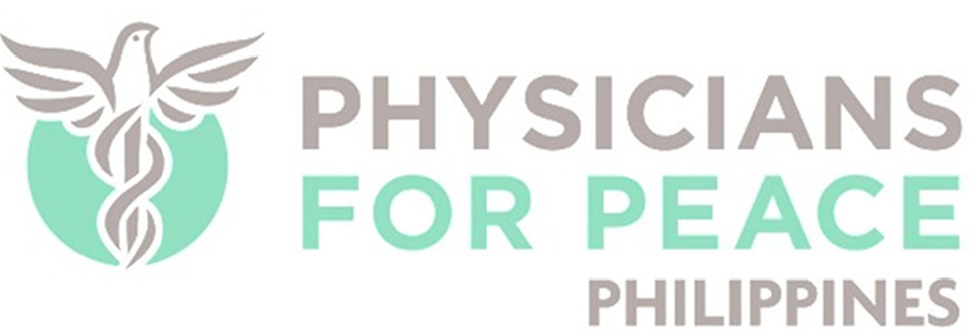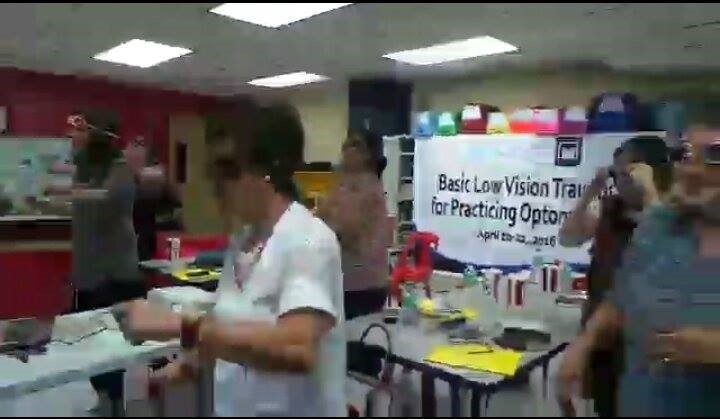The first day of our training was fun and educational .We were made to experience of how a visually impaired individual function . The first question that popped out of my head was, “Do they struggle with their disability?. This simulation gave me the answer. We are ask to wear a low vision simulator –goggles to obscure our vision, the task was to do some activities like some dance exercise and to navigate the room and pick up our meals.
We are told to walk about 3-4 meters from where we are seated to get our lunch and go back to where we are seated, a difficult challenge to some of us. This temporary disability simulation made us temporarily adapt to the vision impairment, a training we may also use in our clinical practice that will make relatives/ parents empathize with their visually impaired loved ones and help them realize the realities of being blind and not to consider the thought of discrimination. The task had not only sharpened our skill in assessing one’s vision , but it also gave us an In Depth idea of their situation which made us realize that disabilities are not hindrances to person’s productivity.
At first, It was difficult for the parent when they learned of their child’s impairment like in the case of our resource speakers from PAVIC ( Parent’s Advocate For Visually Impaired Children) Mommy Tin And Mommy Rose ,who were faced with an enormous situation.
As parents of a vision impaired child,they are the best advocate for a group such as PAVIC. The group was created to support other parents who are faced with these emotional stress, they help parents to sort out how serious the problem is and not to worry about their child’s future. Sudden onset of blindness may indeed be traumatic for some but others may not feel the trauma if they have been living with blindness from the day they were born.
Dr. Maricris P. Lim, O.D.

